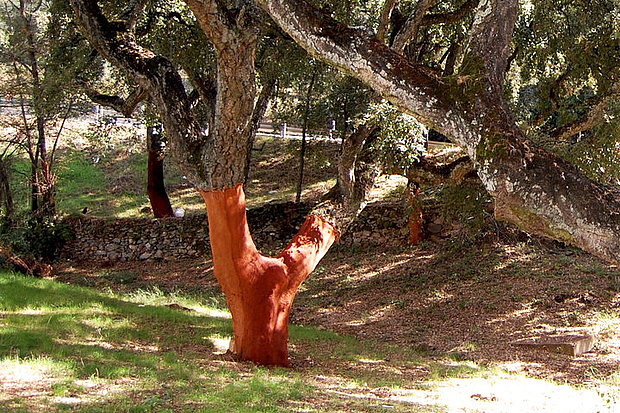
Why natural cork?
The natural cork, punched whole from the bark, is the perfect natural closure for a wine bottle due to its unique physical property.
Although cork is processed in many ways, and processed completely — leftovers are granulated, and even the dust is used for heating — value is added only through the production of high-quality natural corks. Without natural cork as a bottle closure, there is no financial incentive to care for and preserve cork trees. The use of supposedly cheaper alternatives will therefore lead to immense global damage in the long term (fires, extinct animal species, environmental pollution from bauxite mining for aluminum extraction), which will be considerably more expensive to eliminate — if it’s even possible.
FSC
Cork oak forests are a family project spanning generations, and have always met the objectives of the FSC even without certification. Cork oaks usually live for more than 150 years and do not yield any economic benefit in the first 30-40 years, before the bark has the quality needed for producing wine corks. Even after that, they are only stripped every nine years. Due to these long resting periods, a unique fauna and flora has developed in the cork oak forests, which are among the most species-rich areas on earth.
Forest owners traditionally use responsible and sustainable forest management as a matter of course. It’s simply how they ensure their livelihood, which is why they don’t see the need for expensive certification.
Organic
The scope of Regulation (EC) 2018/848 (Regulation on organic production and labeling of organic products) has been extended to natural corks as of 01.01.2022, provided that they have not been pressed from granules and do not contain binders (additives).
Our natural corks, punched as a whole, meet these requirements. Cork oak forests are neither fertilized nor treated with pesticides. Both would affect the quality of the bark and make it unusable for the production of wine corks. The protection of forests through biological and sustainable management is the indispensable basis for the income of the next generation